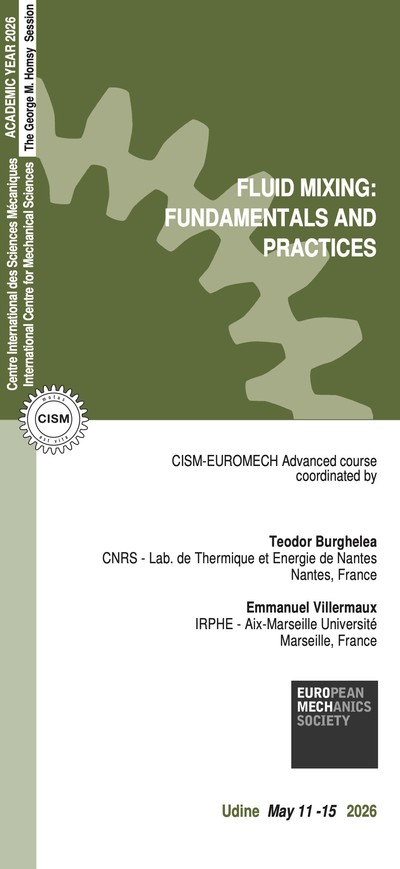The technological developments that took place during the last decades have made possible an interesting convergence between the disciplines of information technology and of electronic, mechanical and biomedical engineering. One of the most innovative aspects is the collaboration of professionals in the medical field with specialists in the fields of computer processing of data and signals and control, to model, analyze and control complex systems. Examples of such systems include biological systems, such as immune response, relationships with health and mental well-being, the cardiovascular system, and vision mechanisms.
The aim of this course is to present some of the most recent results and techniques concerning signal processing, modeling and analysis of biological systems.
In particular, the most appropriate methodologies for the development of low-consumption sensors for the continuous monitoring of physiological parameters, such as the electrocardiogram, will be considered. In particular, applications of the Compressive Sensing technique will be considered for the separation of fetal beats and for diagnosis in the compressed domain.
One of the most interesting parameters related to electrocardiogram analysis is the study of Heart rate variability (HRV), as it appears to be a potential indicator for autonomic function, prediction of adverse cardiovascular outcomes, psychophysiological status, and general wellness. The course will account for the most recent methods used for preprocessing, windowing, and choosing appropriate analysis parameters.
The course will also present results related to the automatic assessment of neuropsychiatric illness, via the analysis of physiological, behavioral, and psychological changes associated with several related signals, which can be passively monitored using sensors in smartphones, wearable accelerometers, Holter monitors, and multimodal sensing approaches that fuse multiple data types.
The course will also provide fundamental new insights into the emergent behavior of complex biological and embedded systems through the use of revolutionary, highly scalable and fully automated modeling and analysis techniques.
Moreover, the course will present the fundamentals of systems biology, which provides a multi-disciplinary, holistic view over the functioning of biological processes seen as complex systems of dynamically interacting entities. It will also discuss system-theoretic and control-theoretic approaches tailored to get a deeper insight into the dynamic and steady-state behaviour of biological systems, and to help design artificial biomolecular systems with a desired behaviour in synthetic biology. In particular, the huge variability and uncertainty of biological systems will be taken into account to pursue a parameter-free analysis.
The course is manly addressed to doctoral students on first come first served basis.
The registration fee is 350,00 Euro + VAT taxes*, where applicable (bank charges are not included).
The registration fee includes a complimentary bag, three fixed menu buffet lunches, coffee breaks, downloadable lecture notes and wi-fi internet access.
Applications should be made on-line through our web site: http://www.cism.it/courses/E1901/.
A message of confirmation will be sent to accepted participants.
Information about travel and accommodation is available on our web site, or can be mailed upon request.
A limited number of rooms is available at our Guest House at the rate of Euro 30,00 per person/night.
Applicants may cancel their course registration and receive a full refund by notifying CISM Secretariat in writing (by email) no later than two weeks prior to the start of the course.
If cancellation occurs less than two weeks prior to the start of the course, a Euro 50,00 handling fee will be charged. Incorrect payments are subject to Euro 50,00 handling fee.
* Italian VAT is 22%.





